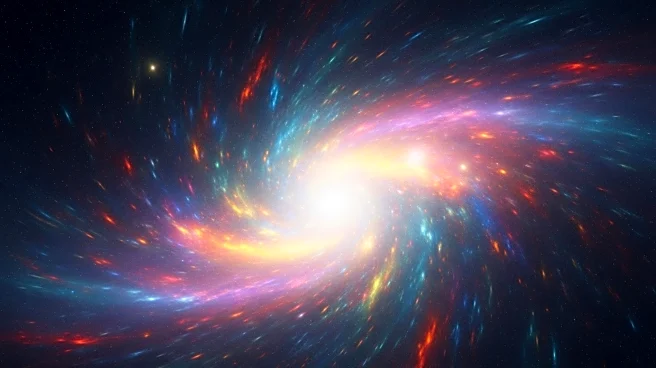What's Happening?
The concept of the universe being a massive black hole has intrigued scientists and the public alike. This idea, which dates back to a 1972 letter by physicist Raj Kumar Pathria, suggests that the universe's vast emptiness and low density could align with the characteristics of a black hole. The theory posits that the universe's observable mass and volume could fit within the parameters defined by Schwarzschild's formula for black holes. However, despite these mathematical similarities, the universe's isotropic expansion and the nature of its event horizon and singularity differ significantly from those of a black hole.
Why It's Important?
This exploration challenges our understanding of cosmic structures and the fundamental nature of the universe. If the universe were a black hole, it would redefine our perception of space-time and gravity, potentially impacting theories in cosmology and physics. The discussion also highlights the versatility of gravitational forces in shaping cosmic phenomena, from black holes to the expanding universe. Such inquiries push the boundaries of scientific knowledge and inspire further research into the universe's origins and structure.
Beyond the Headlines
The debate over the universe as a black hole underscores the complexity of interpreting cosmic phenomena through mathematical models. It raises philosophical questions about the nature of reality and our place in the cosmos. The discussion also reflects the ongoing quest to reconcile general relativity with quantum mechanics, as understanding black holes could provide insights into unifying these fundamental theories.











